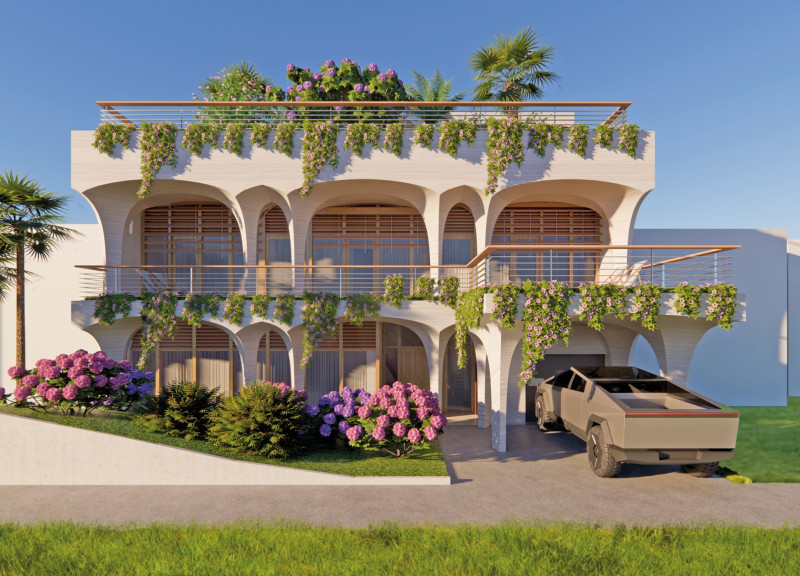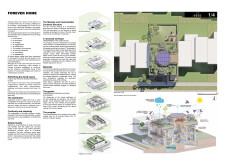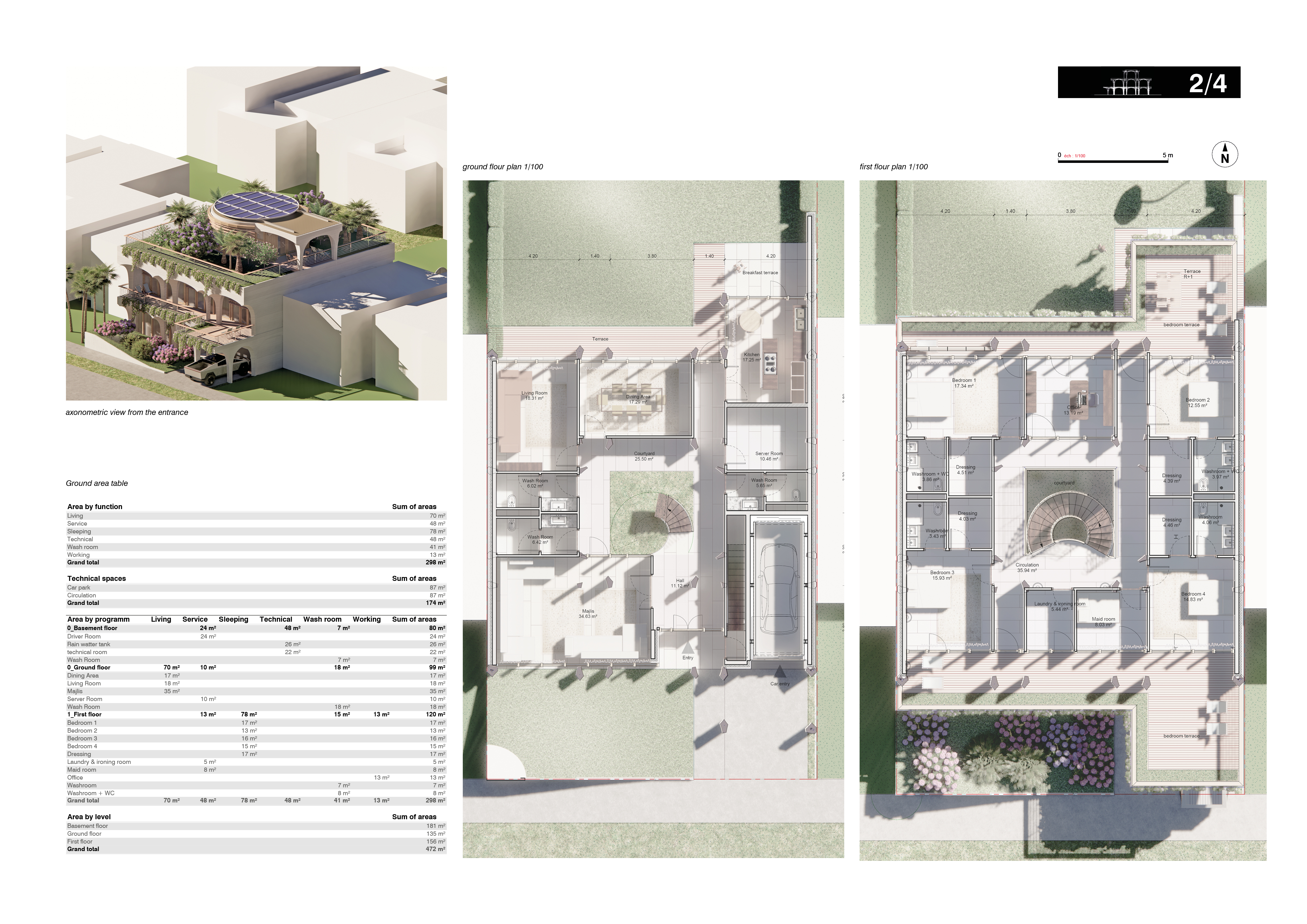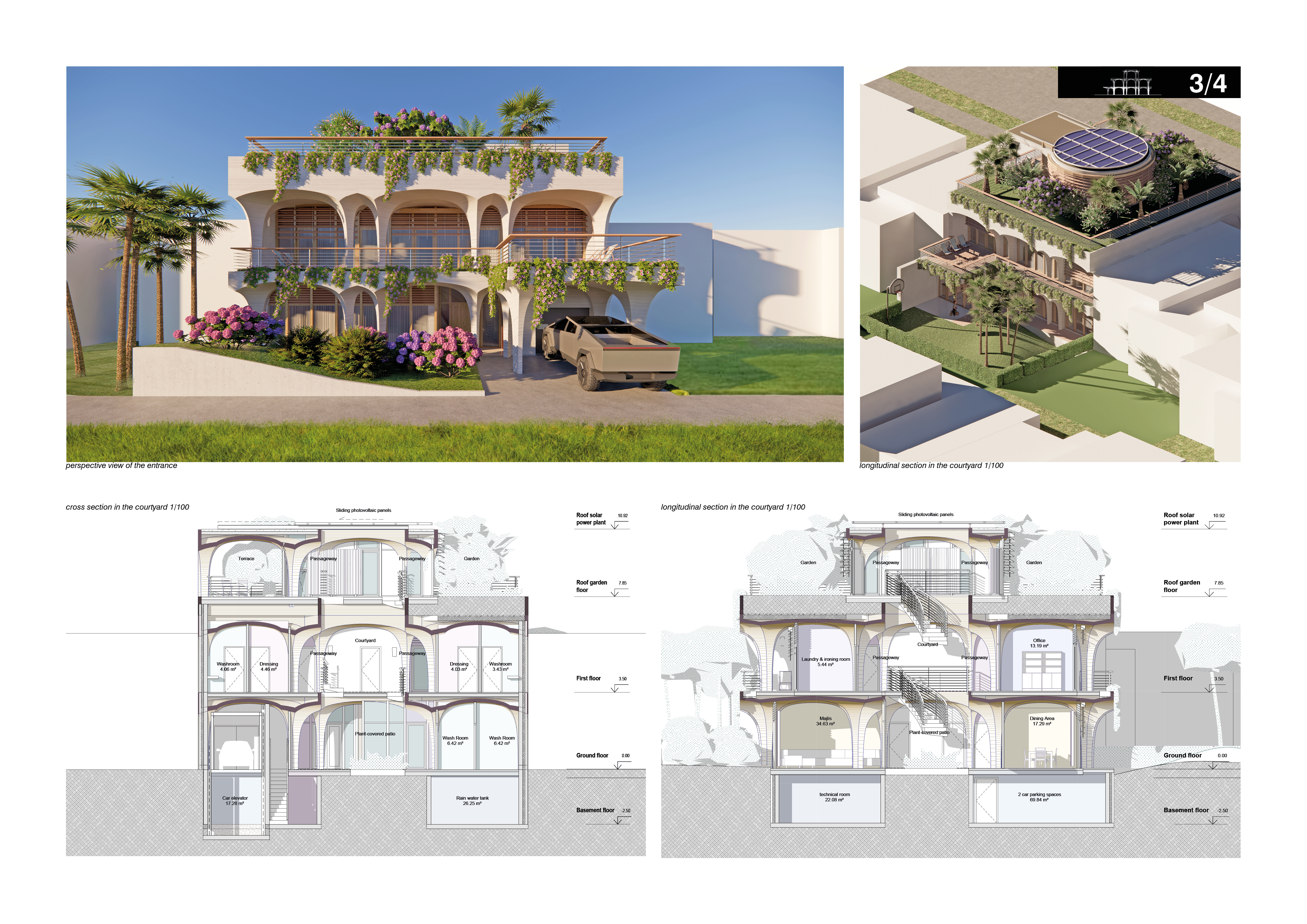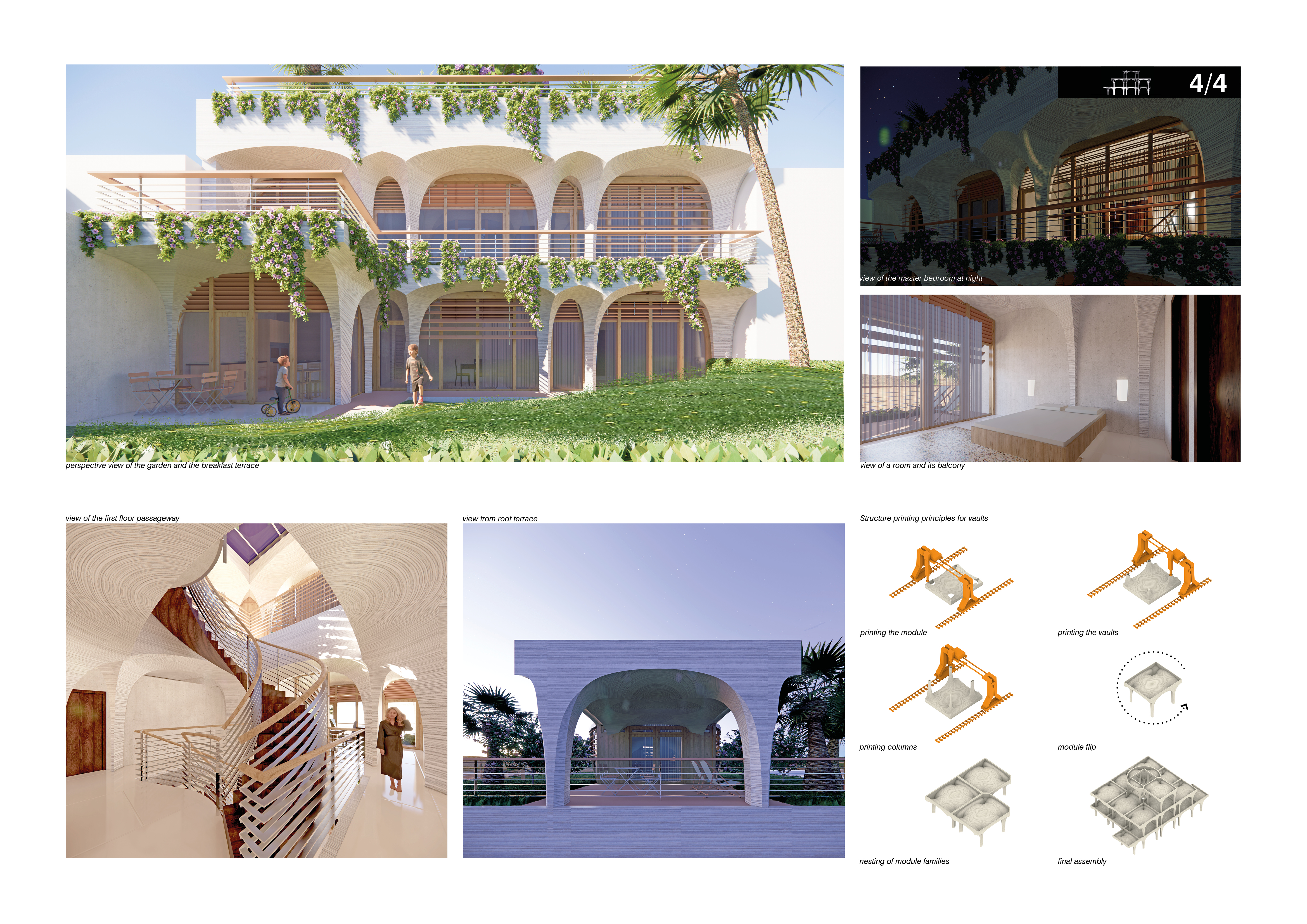5 key facts about this project
### Project Overview
The Forever Home, situated in the United Arab Emirates, is designed with a focus on modularity, sustainability, and adaptability. The architectural concept incorporates advanced construction methodologies, particularly 3D concrete printing, to respond effectively to contemporary living requirements while promoting environmental responsibility.
### Spatial Configuration and User Experience
The architectural layout efficiently organizes public and private spaces across multiple levels, fostering both communal interactions and individual privacy. The ground floor features open living and dining areas, a kitchen, and service facilities, all providing direct access to outdoor gardens. The first floor is dedicated to private sleeping quarters, enhanced by terraces that accommodate flexible multifamily arrangements. This arrangement enables seamless navigation and connectivity between spaces, ensuring a harmonious living environment.
### Material Selection and Sustainability Strategies
A commitment to sustainability is evident in the choice of materials and construction techniques. The primary structural element, 3D printed concrete, is selected for its eco-friendliness and efficiency. Additional low-carbon materials are employed to minimize the overall carbon footprint, while wood is used in interior finishes to create warmth and aesthetic appeal. Large glass windows and facades facilitate natural light and ventilation, enhancing the living experience.
Innovative bioclimatic design strategies are incorporated to achieve energy efficiency and thermal comfort. The orientation of facades supports passive cooling and heating, reducing dependency on mechanical systems. A green roof serves as both a recreational space and a means to enhance insulation and manage stormwater, contributing to the project's overall sustainability. The design also prioritizes pedestrian access to communal gardens and terraces, integrating landscaped elements that promote social interaction and environmental connectivity.


